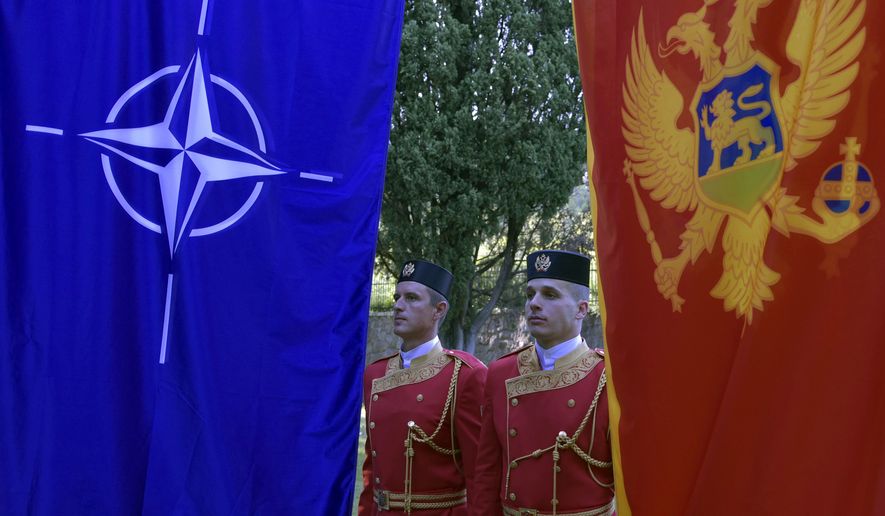The U.S. Embassy in Montenegro was hit by a grenade-wielding suicide attacker early Thursday morning, causing the facility to tell Americans to stay away and avoid crowds.
The unknown man threw an explosive device at the building in Podgorica, before blowing himself up. Local witnesses heard two explosions around midnight.
The Montenegrin government’s official Twitter account said the attacker was a suicide bomber around 12:30 a.m. local time.
“An unknown person committed suicide with an explosive device. Immediately before, that person threw an explosive device from the intersection near the Sport Center into the US Embassy compound. Most probably, the device was a hand grenade,” the government account wrote over two tweets.
Citing one of its photographers, Reuters news agency reported that the embassy’s street had been blocked off by police but there was no obvious damage to the facility.
The New York Times reported that there was no injuries inside the U.S. compound as it had closed for the evening some time earlier. Embassy officials also checked the grounds to ensure there were no further bombs or grenades.
Nevertheless, as a precaution, the Embassy on Thursday morning issued a warning that “advises U.S. citizens there is an active security situation at the U.S. Embassy in Podgorica. Avoid the Embassy until further notice.”
The warning also advised Americans in Montenegro to avoid large gatherings, monitor local media outlets and “employ sound security practices.” The building will be closed Thursday as a further precaution.
Steve Goldstein, the State Department’s undersecretary for public diplomacy and public affairs, told the Times that the U.S. does not know the motive for the bombing or whether it was intended to be a suicide attack.
Montenegro was the only one of the other republics in the former Yugoslavia to remain voluntarily in the Serb-dominated federation after the collapse of the Iron Curtain.
During the late 1990s, that rump Yugoslavia, consisting of Serbia and Montenegro, was repeatedly bombed by the U.S.-led NATO coalition over the civil war and ethnic cleansing in neighboring Kosovo.
Montenegro became independent in 2006 and a NATO member last year, but public sentiment against NATO remains strong.
• Victor Morton can be reached at vmorton@washingtontimes.com.




Please read our comment policy before commenting.